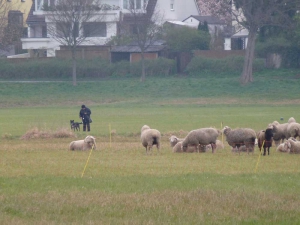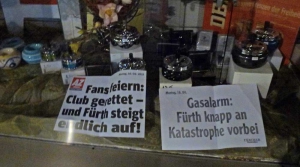The recent decision of the Hamburg Regional Court on GEMA v. YouTube has been variously reported in English – for instance by Birgit Clark on IPKat.
In this decision, a wonderful legal translation problem arises: the term Störerhaftung (literally disturber’s liability). This is a term which doesn’t exist in English law and has a widish range in German law, of which the internet form is only part.
You can read about it at great length if you download Alexander Hartmann’s Ph.D. thesis Unterlassungsansprüche im Internet (so this is what he was writing when he started the jurabilis blog). It becomes clear – or unclear – from this that even defining the term in German is far from straightforward.
So if you are looking for a global term covering all potential meanings of Störerhaftung, the search is doomed to fail, and we will stick to the internet context and create a term, and the first time it comes around will put the German term in brackets. This is what is done on IPKat:
The court disagreed with defendant and held that YouTube was not liable via the legal instrument of “Täterhaftung“, that is by actually having committed the infringing acts itself, but could only be held liable via the principle of disturber liability (“Störerhaftung”).
This absolutely does the job. An alternative to disturber is interferer, which I slightly prefer. But it remains that it seems odd in English to see YouTube as a disturber or interferer. (I tend to see GEMA as a disturber!). Störerhaftung is a term which has been mentioned on IPKat before, btw.
Mr Justice Arnold in the High Court (L’Oreal v EBay) took the same approach:
Nevertheless, the Bundesgerichtshof held that Rolex had a claim to an injunction based on the German legal principle of Störerhaftung, which may be translated as “disturber” or “interferer” liability,… since ricardo had wilfully made an adequate causal contribution to the infringements.
And here is another mention in a discussion of that case,
Issuing an injunction against hosting providers in Internet law is based on the German principle of Störerhaftung which can be translated as the liability of a “disturber” or “interferer”45. It is important to note that interferer liability is a long-standing principle which has existed for many years and is now being applied to Internet law. This principle protects absolute rights pursuant to secs 823, 1004 of the German Civil Code. It means that anyone who somehow contributes deliberately and adequately causal to the infringement of a protected right can be subject to an injunction, without being the perpetrator or an accessory. Trade marks are such protected absolute rights. Injunctions can be issued regardless of negligence or fault. However, this action does not result in monetary compensation for the trade mark owner.
(‘Adequately causal’ should be an adverb phrase, ‘with sufficient causative effect’).
A Störer is therefore someone who is not a prepetrator or an accessory. Other translations found, e.g. on Linguee, include co-liable party, which works well, I think, and (for Störerhaftung) breach of the duty of care, which seems far too woolly. One also finds troublemaker, which refers to a completely different use of the same word Störer.












